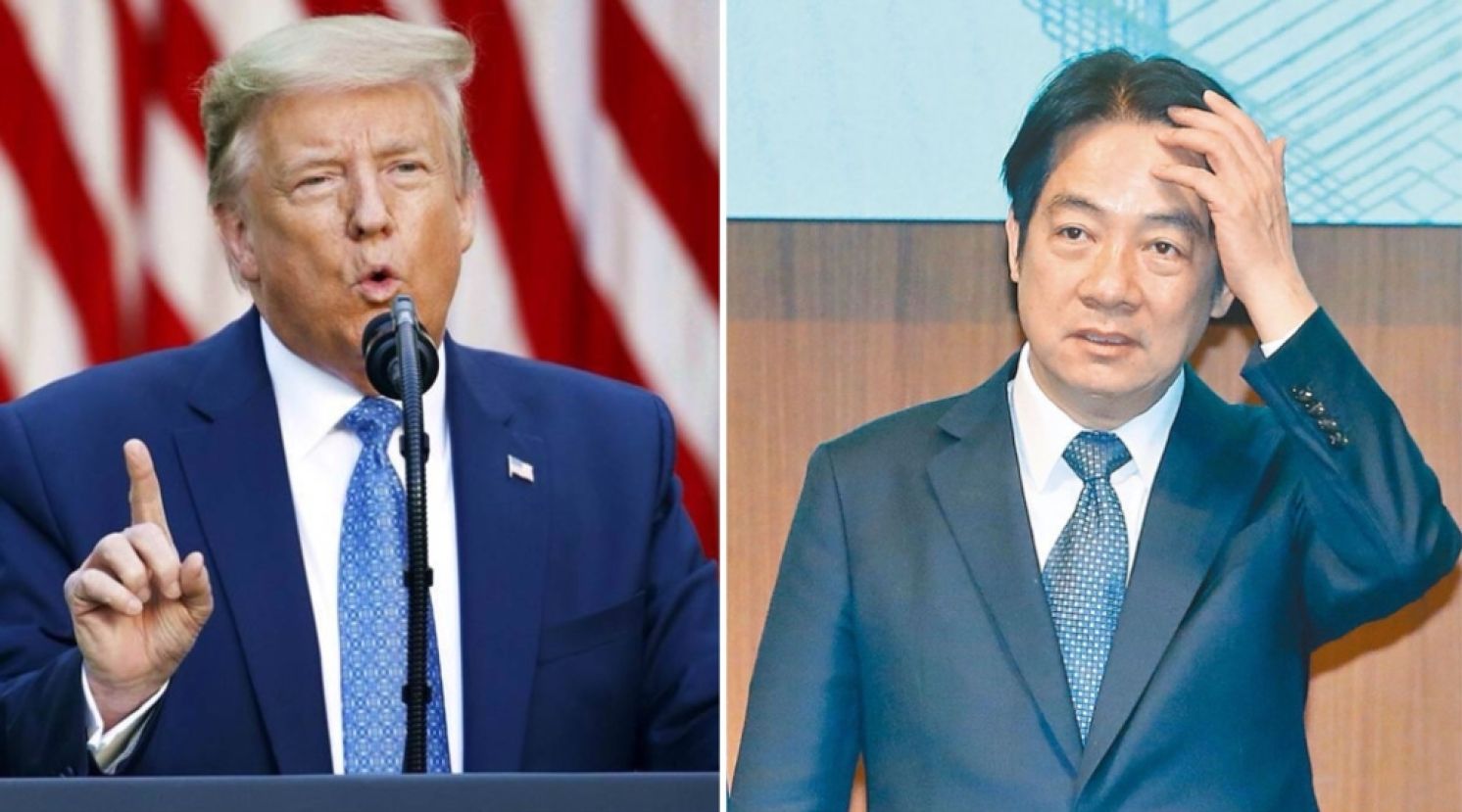
If Trump-Tsai Call Was An Accident, Then No Trump-Lai Call May Be Hidden Warning
United Daily News Editorial, November 7, 2024
Eight years ago, then-President Tsai Ing-wen made a congratulatory call to the U.S. President-elect Donald Trump. Now, after eight years, there are rumors that President Lai Ching-te is considering a similar call to Mr. Trump, which the Office of the President has immediately and strongly denied. If the "Trump-Tsai call" was an unexpected occurrence, that "Trump and Lai aren’t making calls" is a reality. The intriguing nuance between "Tsai could, but Lai cannot" leaves much to ponder.
The 2024 U.S. presidential election concluded, and Bloomberg has reported, citing sources, that President Lai is considering attempting a call to Mr. Trump. However, Spokeswoman Karen Kuo of the Office of the President clarified today that President Lai has already sent a congratulatory letter forwarded through the Taipei Economic and Cultural Representative Office in the United States and has no plans to arrange a congratulatory phone call. Democratic Progressive Party (DPP) Legislator Wang Ting-yu interpellated in the Legislative Yuan today whether there would be any public or private phone call arrangements between the Lai administration and Trump’s team, given the "Trump-Tsai call" of 2016. Minister of Foreign Affairs Lin Chia-lung responded that the Ministry of Foreign Affairs (MOFA) has maintained long-term communication channels with Trump’s team to exchange views on policy but there is no discussion of a call. He also emphasized that “America-skeptic” theory, a narrative from Mainland China aimed at undermining U.S.-Taiwan relations, would not succeed.
While Tsai spoke with Trump on the phone in 2016, President Lai now denies plans to do the same. People wonder why, despite both involving Mr. Trump, Tsai could connect, but Lai cannot. Many have tried to piece together what led to the 2016 Trump-Tsai call. Washington Post columnist Josh Rogin’s book reveals that the call was actually an unexpected occurrence. Taiwan was reportedly the last on Mr. Trump’s list of foreign contacts during the transition of power, and no one managed to stop it amid the chaos. Others suggested that Mr. Trump insisted on the call despite opposition, though he did not anticipate its severe consequences. Ambassador Stanley Kao, former representative to the United States, clarified that the Trump-Tsai call was carefully planned over nearly six months, instead of an impromptu act. The truth behind the call remains a point of contention, just like Rashomon effect, but it’s certain that the ten-minute telephone conversation had lingering effects. Beijing reacted strongly, and criticism was higher than expected. Former Legislator Kuo Cheng-liang asserted that Mr. Trump would not again allow Taiwan to become a variable, making a direct line between Trump and Lai unlikely.
As Mr. Trump prepares to return to the White House, a new world order is taking shape. North Atlantic Treaty Organization (NATO) is tense, Ukraine is on edge, and clues may be gleaned from the calls made by leaders from various countries. The Russia-Ukraine war has worsened U.S.-Russia relations, and yesterday, the Kremlin stated that relations with the United States are at a historic low, with America seen as “an unfriendly nation” and President Vladimir Putin having no plans to congratulate Mr. Trump. On the contrary, while U.S.-China relations remain tense, Chinese President Xi Jinping called to congratulate Mr. Trump at the earliest opportunity, expressing that “Both China and the United States gain from cooperation, while lose from confrontation.”
Whether U.S.-Taiwan relations are rock solid is not for the DPP to claim. Beijing and Washington’s competition and cooperation affect U.S.-China-Taiwan relationships. If Mr. Trump adopts an anti-China stance, Taiwan’s semiconductor industry remains a key asset as “silicon shield.” But if U.S.-China relations improve, Taiwan may have to pay a high “protection fee.” Reuters cited aviation industry sources reporting that China Airlines is close to signing a long-haul aircraft order worth around $4 billion, which will be split between Boeing and Airbus. This move is seen as Taiwan demonstrating through action its commitment to maintaining a strong U.S.-Taiwan relationship in the new Trump era.
Mr. Trump’s return to office this time is vastly different from the past. The cost for Taiwan to reconnect will be higher than eight years ago. While the DPP maintains diplomatic communication channels with the United States, neither Vice President Hsiao Bi-khim nor representative to the United States Ambassador Yui Tah-ray has direct channels to Mr. Trump’s core team—a fact that cannot be denied. International relations rely on strength, and Taiwan is in a weaker position in realpolitik. International diplomacy isn’t like social networking. It’s not that Taiwan can meet anyone it wants or make a call whenever it wishes.
With the Trump administration returning, the global landscape is on edge, especially for Taiwan, which is in a difficult position. Whether it is rumors of President Lai planning to transit through the United States during an overseas visit or considering a call to Mr. Trump, the Lai administration immediately denies them, but cannot stop various comments from spreading around. Despite MOFA dismissing the notion of "America-skeptic” theory, the doubts about Lai from Washington might be the real warning sign.
Mr. Trump’s slogan, “Make America Great Again,” swept the world, with Taiwanese netizens humorously adapting it to “Make Taiwan Pay Again.” Today, Minister Lin proposed a new interpretation, saying that “Making America Great Again cannot happen without Taiwan.” One wonders how Mr. Trump might think if he heard this. As of now, the Lai administration has severed communication with China and is out of touch with Mr. Trump.” Whether Taiwan is a crucial piece in Mr. Trump’s puzzle to make America great again remains uncertain, and without a direct line between Trump and Lai, President Lai may also be out of the loop.
Photo from: China Times
Article From: https://udn.com/news/story/11091/8344590